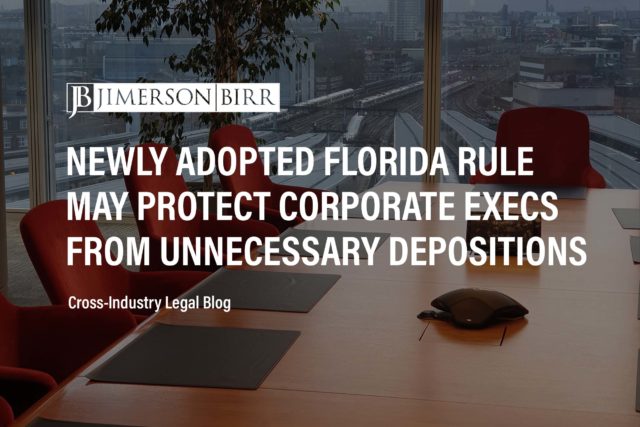How does education industry licensure affect schools?
Education industry licensure profoundly affects schools by setting standards for quality, ensuring accountability, and safeguarding the well-being of students and staff. Licensure requirements, established by state education departments or other regulatory bodies, apply to educational institutions, administrators, teachers, and support staff across various levels of education, from early childhood centers to higher education institutions.
First, licensure requirements play a pivotal role in maintaining educational standards and quality. By establishing minimum qualifications and competency benchmarks for educators and administrators, licensure ensures that individuals working in schools possess the necessary knowledge, skills, and expertise to effectively support student learning and development. This fosters a culture of professionalism and excellence within the education sector, ultimately benefiting students by providing them with high-quality instruction and support.
Second, education industry licensure promotes accountability and transparency within schools. By requiring schools to adhere to specific standards and regulations, licensure holds institutions accountable for their actions and ensures compliance with legal and ethical responsibilities. Schools must demonstrate their adherence to licensure requirements through documentation, assessments, and evaluations, thereby promoting transparency and trust among stakeholders, including students, parents, and the broader community.
Moreover, education industry licensure serves as a mechanism for safeguarding the well-being of students and staff within educational settings. Licensure requirements often include background checks, fingerprinting, and other screening measures to ensure the safety and security of individuals working with vulnerable populations, such as children and adolescents. By establishing rigorous criteria for licensure, schools can mitigate risks associated with potential misconduct or negligence and create safer environments conducive to learning and growth.
Need help regarding education industry licensure? Schedule your consultation today with a top education attorney.
In Florida, which laws regarding education industry licensure apply to schools?
In Florida, schools are subject to the same federal immigration laws that apply to businesses across the United States. Some of the key immigration laws and regulations that affect schools in Florida include:
- Florida Statutes, Chapter 1012: This set of statutes specifically addresses educator certification and professional development. It establishes the requirements and procedures for obtaining and renewing educator certificates, as well as the standards for educator preparation programs and continuing education.
- Florida Statutes, Chapter 1003: This chapter of the Florida Statutes outlines the general requirements and regulations for K-12 education in the state, including provisions related to teacher certification, school district operations, and educational accountability.
- Florida School Code, Section 1001.42: Section 1001.42 of the Florida School Code outlines the powers and duties of the state board of education, including its authority to adopt rules and regulations governing educator certification and school accreditation.
- Florida Administrative Code, Chapter 6A: This chapter of the administrative code governs accreditation of educational institutions and establishes rules and standards for the operation of public K-12 schools in Florida.
What are common issues regarding education industry licensure that lead to litigation?
Several common issues regarding education industry licensure in schools can potentially lead to litigation. stemming from various aspects of certification, accreditation, and compliance with licensure requirements. Some of the most prevalent issues include:
- Certification Denial or Revocation: One common issue that may lead to litigation is the denial or revocation of educator certification. This could occur due to discrepancies in application materials, failure to meet certification requirements, or allegations of misconduct. Educators may challenge such decisions through administrative appeals or legal action if they believe their certification was unfairly denied or revoked.
- Licensure Renewal: Problems related to the renewal of educator licenses can also lead to disputes and litigation. Educators may face challenges in meeting renewal requirements, such as completing continuing education credits or passing licensure exams. Disputes may arise if educators are unable to renew their licenses due to extenuating circumstances or administrative errors.
- Accreditation Issues: Accreditation-related issues, including denial or loss of accreditation for educational institutions, can result in litigation. Schools may challenge accreditation decisions made by accrediting agencies, alleging procedural errors, bias, or unfair treatment. Accreditation status is often tied to funding, reputation, and student enrollment, making disputes over accreditation particularly contentious.
- Compliance with Licensure Requirements: Schools may face litigation if they fail to comply with licensure requirements imposed by state education departments or accrediting bodies. This could include issues such as employing uncertified teachers, offering programs without proper accreditation, or failing to meet standards for instructional quality or student outcomes.
- Allegations of Misconduct: Educators or school administrators accused of misconduct, such as unethical behavior, negligence, or violations of professional standards, may face disciplinary action by licensing boards or regulatory agencies. Disputes over allegations of misconduct can lead to litigation, particularly if educators believe they have been unfairly targeted or disciplined.
- Discrimination or Retaliation: Disputes related to discrimination or retaliation in the licensure process can also result in litigation. Educators or applicants may allege discrimination based on protected characteristics such as race, gender, or disability, or retaliation for reporting violations or asserting their rights. Schools and licensing boards must ensure that licensure decisions are made based on merit and compliance with established criteria, rather than discriminatory or retaliatory motives.
To determine whether your unique situation may necessitate litigation, please contact our office to set up your initial consultation.
What steps should schools take to minimize the risk of litigation over education industry licensure?
To minimize the risk of litigation over education industry licensure, schools should take proactive steps to ensure compliance with licensure requirements and promote transparency and fairness in their licensure processes. Here are some key steps schools can take:
- Establish Clear Policies and Procedures: Schools should develop comprehensive policies and procedures outlining the requirements and processes for obtaining and maintaining licensure for educators, administrators, and staff. These policies should be clearly documented, easily accessible, and consistently applied across the organization.
- Provide Training and Support: Schools should offer training and support to educators and administrators on licensure requirements, application procedures, and compliance expectations. This may include workshops, seminars, or online resources to help individuals understand their licensure obligations and navigate the licensure process effectively.
- Ensure Accurate Recordkeeping: Schools should maintain accurate and up-to-date records of licensure-related documentation, including application materials, transcripts, licensure certificates, and professional development credits. Proper recordkeeping is essential for demonstrating compliance with licensure requirements and responding to inquiries or audits from regulatory agencies.
- Conduct Regular Audits and Reviews: Schools should conduct regular audits and reviews of their licensure processes and documentation to identify any gaps, errors, or areas for improvement. Audits can help ensure that licensure requirements are being met consistently and that any issues are addressed promptly to mitigate the risk of non-compliance.
- Foster a Culture of Compliance: Schools should foster a culture of compliance with licensure requirements and ethical standards throughout the organization. This includes promoting awareness of licensure obligations, encouraging open communication about licensure-related issues, and emphasizing the importance of integrity and professionalism in licensure matters.
- Address Complaints and Concerns Promptly: Schools should establish procedures for addressing complaints and concerns related to licensure issues and ensure that grievances are handled promptly, fairly, and transparently. By addressing issues proactively and seeking to resolve them through appropriate channels, schools can mitigate the risk of disputes escalating into litigation.
Have more questions about education industry licensure?
Crucially, this overview of education industry licensure does not begin to cover all the laws implicated by this issue or the factors that may compel the application of such laws. Every case is unique, and the laws can produce different outcomes depending on the individual circumstances.
Jimerson Birr attorneys guide our clients to help make informed decisions while ensuring their rights are respected and protected. Our lawyers are highly trained and experienced in the nuances of the law, so they can accurately interpret statutes and case law and holistically prepare individuals or companies for their legal endeavors. Through this intense personal investment and advocacy, our lawyers will help resolve the issue’s complicated legal problems efficiently and effectively.
Having a Jimerson Birr attorney on your side means securing a team of seasoned, multi-dimensional, cross-functional legal professionals. Whether it is a transaction, an operational issue, a regulatory challenge, or a contested legal predicament that may require court intervention, we remain tireless advocates at every step. Being a value-added law firm means putting the client at the forefront of everything we do. We use our experience to help our clients navigate even the most complex problems and come out the other side triumphant.
If you want to understand your case, the merits of your claim or defense, potential monetary awards, or the amount of exposure you face, you should speak with a qualified Jimerson Birr lawyer. Our experienced team of attorneys is here to help. Call Jimerson Birr at (904) 389-0050 or use the contact form to schedule a consultation.

We live by our 7 Superior Service Commitments
- Conferring Client-Defined Value
- Efficient and Cost-Effective
- Accessibility
- Delivering an Experience While Delivering Results
- Meaningful and Enduring Partnership
- Exceptional Communication Based Upon Listening
- Accountability to Goals










